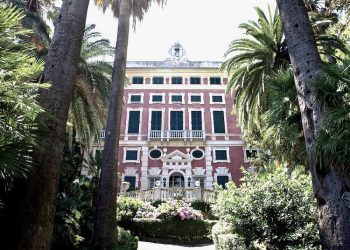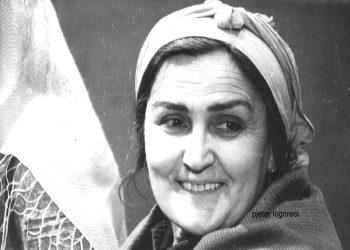Dashnor Kaloçi
Memorie.al publishes some archival documents issued by the Central State Archive in Tirana (fund of the former Central Committee of the ALP), which belong to the months of April 1973, where there is an information report by Dhimimtër Fullani, Chief of Poetry, Drama and Criticism in the Publishing House “Naim Frashëri” sent to the Central Committee of the ALP and personally the secretary of propaganda, art and culture Ramiz Alia, regarding some of the writers and poets who had submitted their works for publication near that institution, but which had not been published, because of the many problems and ideological errors they had. Full report-information of Fullani for “problematic authors”, such as Xhevahir Spahiu, Frederik Reshpja, Fatos Arapi, Sadik Bejko Faslli Haliti, Miho Gjini, Gjergj Zheji, Agim Gjakova, Hiqmet Meçe, Lirim Deda, Milianov Kallupina, Ylli Pol Çerkezi, Bajazit Cahani, etc., who in their works “were influenced by the liberal spirit and had presented modernist, hermetic, surrealist works”, etc.
Immediately after Enver Hoxha’s speech held on March 15 and 16, 1973 in the office of the Presidium of the People’s Assembly of Albania, where the main topic was: “The fight against foreign and liberal performances in art and culture and their impact on all the life of the country ”, where he mentioned for the first time Todi Lubonja and Fadil Paçrami, throwing harsh accusations against them, as the main person responsible for the 11th National Song Festival on Radio-Television, etc., in all cultural and artistic institutions of in the capital and throughout the country, from the basic organizations and committees of the district party, a series of meetings were held with numerous analyzes where “the word of comrade Enver was worked out”.
In this context of the development of the events of that time in that “cold” early spring of that year, only a few days after the “programmatic speech of comrade Enver Hoxha”, even in the Publishing Company “Naim Frashëri”, all its relevant newsrooms , underwent a detailed analysis of the work they had done up to that time, not only with those that had been published, but also with works and volumes that had not yet seen the light of publication, due to their problems with “Foreign influences”.
Related to this is the document that we are publishing in this part of the book, (the material is detached from a voluminous file with the secret logo) which is dated April 19, 1973, and where the head of the editorial office of Poetry, Drama and Criticism, Dhimitër Fullani , in the Publishing House “Naim Frashëri”, Dhimitër Fullani, has made a report-information for the Central Committee of the ALP, specifically for Ramiz Alia, the relevant secretary who covered art, culture and propaganda.
In this report-information, Dhimitër Fullani has analyzed in detail and detail all the work that that editorial office has done throughout 1972 with publications in the genre of poetry. Thus he has analyzed a large number of writers and poets, passing through a “fine sieve” all their work and making a deep purge in all the poetic volumes of 1972.
What stands out in the report-information in question, is that the “sword” of the head of the editorial office of Poetry, Drama and Criticism, Dhimitër Fullani, has fallen “mercilessly” not only to some writers and poets, starting from those most experienced and even the youngest, but he has also criticized the President of the League of Writers and Artists, Dhimitër Shuteriqi, who had allowed and encouraged the publication of the poetic volume “Give me a name”, by Fatos Arapi, a book which was stopped from circulating.
Not only that, but Fullani did not hesitate in his report-information, to reflect in detail the clashes he had due to his duty with Fatos Arap, the poet who, although “coming from the War”, remained problematic in the creativity of until the end of the 1980s, when the communist regime collapsed. Although Ramiz Alia did not put any note in the document in question, but only initialed it, some of the authors mentioned in the report-information of Dhimitër Fullani, then had quite a few problems.
One of them was Sadik Bejko, who after the 11th National Song Festival on Radio-Television, was removed from that institution ‘as the author of the lyrics of the 11th Festival’ and was sent for education in the Memaliaj mine, where worked underground for years, “being educated in the working class.” But, for the above, we know the report-information in question, which we are publishing in full in this part of the book.
Report-information of Dhimitër Fullani, the head of the editorial office of Poetry, Drama and Criticism in the Publishing House “Naim Frashëri”, addressed to the Central Committee of the ALP
R A P O R T
On the results of the review of editorial materials after the speeches of Comrade Enver
We are briefly mentioning here that, in order to preserve the sound content of our poetic volumes, the editorial board has given way to publication, the tendency towards deepening meditation in poetic creativity, which was progressively emphasized, until meditation has served artistic generalization and deepening. of clear and sound lyrical thought, when meditation has served to merge the intimate world of the poet with the general social self, since the deepening of such a meditation is the main evidence for the increased maturity of poetic art.
But the editorial board has excluded poetry when poetic thought remains confined only within the poet’s subject, or when meditation in poetry becomes the conductor of a foreign and hermetic thought. The editorial office has removed dozens of such poems, especially in recent years, such as the volumes of Xhevahir Spahiu, Agim Gjakova, Hiqmet Meçë, etc. Or it has overturned all the volumes and the authors have been forced to bring new volume, after studied remarks and after a close collaboration with the authors.
For the new variant, e.g. who came to the editorial office after returning the volume of poems and poems by Frederik Reshpja, “In this city”, one of the reviewers, who had passed the first two versions, Lirim Deda, says: “The new collection of the poet Frederik Reshpja, presented to the company for publication, I think fully justifies the insistence of that editorial office to help the author with remarks and suggestions. I do not mean by this that the poet needed theory, but I think he very much needed to know himself as a poet, to take seriously not only his mission, but also his ability, to direct the song of the heart to his broad masses of pure, understandable, beautiful, healthy readers ”.
However, only after a deep re-selection and editing by the editorial office, the book was sent to the press at a very satisfactory level. Even after all this cleaning and regeneration, we had to remove two more poems after we withdrew it from the printing house. I emphasize that together with the cycle taken from the volume “In this city”, the author has published in Nr. 6 1972 of “Nëndori” also the poem “Returning to the homeland”, which is not understood at all and can be taken as one of the typical modernist poems, both in content and form.
A year ago Milianov Kallupi presented the volume for publication. We emphasized the important requirements to abandon the surrealist conception, for the author to move away from the equivalents of hermeticism, to address important topics, to line up the mania of figuration, and to raise the artistic level, and so on. After returning four times to Milianov Kallup, the editorial office achieved its goal and the volume was published in the press, as an interesting work, with rich themes, full of partisanship and with a healthy spirit, both in terms of form and content.
Also the tendency of our poetry emphasized towards the search for various riches of figurative expressions has always been evaluated in a differentiated way during our selection and editing practice. We have supported it when figuration has served to raise the artistic level of poetry, when it has given breadth and depth to sound poetic thought, but when the search for figuration has become an end in itself we have selected it from our volumes, despite the fact that something has escaped us by chance, with the exception of Fatos Arap, of whom it was spoken.
We have turned and selected poems for poems whole volumes like those of Ylli Polovina, P. Çerkezi. K. Zharos, and many others from illogical capricious figurations, etc., who express a tendency of formalism. But periodic bodies do not do a deep selection work and this is one of the reasons why we have a big job here, which we cannot afford enough.
To get an idea of the difference between our criteria in poetic publications and periodicals, we are mentioning some characteristic cases. The poem “Holta” by Faslli Haliti, returned by us as a poem with Mannerist figuration, was published in “Drita”, 22.X.1972. The poem “Roots of Xhevahir Spahiu removed from us, that there is a perspective without perspective for the working class”, was published in “Drita”, 23.IV.1972. The dark fragmentary poem “When I collect folk songs”, removed from us, was published in “Drita”, May 14, 1972, etc.
There is no studied editorial work to save poems from weaknesses and wrong thoughts in order to benefit from them good poems. The unedited poem “River” by Sadik Bejko (“Light”, July 2, 1972) is darkly contradictory, while in our volume, edited and brushed; it clearly gives the idea of a man who goes towards a great goal through a socially active life. Also, the poems “Meditation” and “Roots” (“Light”, 2.IV.1972), wrong, turned out to be good poems, when we removed some verses in agreement with the author and included them in the volume, etc.
The cases of slips between the works that were withdrawn from the press, especially the books of Miho Gjini, Fatos Arapi and Gjergj Zheji are serious, but they and all other works in this category were eliminated and did not go to the reader as books, despite almost all the material of them has been published in the press.
To be realistic, no one criticized Miho Gjini’s timely published articles for bias. Also, no one has so far opposed Gjergj Zheji’s liberal thoughts in the article we are removing from his volume, thoughts that develop more broadly in his critical article against Razi Brahimi’s work “When we talk about poetry”, published in “Nëndori” no.3.1973.
These thoughts, which before Comrade Enver’s speeches were considered new successes for our critique, will become the object of criticism from now on. To say things as they are. The biggest absurdity related not only to the case of Fatos Arapi, but to the whole tendency of hermetization in poetry is Kudret Velça’s article “From conservative waste to modernist influences”, published in “Nëndori” No.6-1972, where he said black and white day in the sun to justify such a heavy slip in poetry with the most hermetic poems ever published to us.
In the partial purges of works in the press, we are not dealing with very serious omissions, such as some poetry with a reactionary spirit and an ideologically wrong ending, or any such obsession with figuration as “The Fig of the Sea”. But when you look at all together these ambiguities of thought and poetic expression, these equivocal expressions or sentimental atmosphere, which began to be justified in the literary environment, it becomes clear that even in our editorial office had begun to make the pinnacle of modernist influence. These initial foci of infection would spread the epidemic throughout our poetic volumes. There is a friend among us who remembers that the work of the editor should not be related to the opinion he expresses in conversation or in the press.
I am reminding comrade Pandeli Koçi of the appropriate remark made by the Director in the annual analysis report regarding his article against Razi Brahimi, where he says, among other things: “In the given case, first of all by comrade Pandeli Koçi who responded Razi Brahimi with an article of his had to assert that that poem was wrong and, as such, unpublishable and such poems should not find a place in us.
The credentials of the Editor of the Publishing House should have been expressed openly for the given literary fact itself. Confusing and dispersing into controversy over the second-hand issue, Pandeli Koçi made the next biggest mistake, hinting that we should not be alarmed about influences, because they are just a scratch and boil supposedly unimportant in development of our poetry”.
This remark was made by the editor-in-chief Dhimitër Fullani, when he was drafting this article, that he was opposing a critique of hermetic poetry, against which we all and he were fighting every day in the editorial office. (And Pandi has previously been intrasigent especially against hermetic poetry). This contradictory situation in Pandi was the result of the tolerant concept of liberal performances in poetry, which did not remain without consequences at all in his practice as an editor.
Comrade Pandi was saved by a whole poem like that of Bajazit Cahani, “Waiting”, with a sentimental spirit, salty tears as a mark with every verse where any protest is expressed against the deprivation of love from the conservative concept and custom, these verses inserted into the mold, which is not justified by the compositional structure of this poem conceived and expressed that in essence almost like the sentimental erotic poems of the past.
If we understand each other well: Here we tried to see the problem from all sides, that phenomena are always connected and interdependent. It is a fact that even the examples we brought above, this editorial office cannot act independently of the whole literary activity of the country with its pros and cons.
We must also say that by giving place to the external causes of these internal slips, we have not done so in order to wash ourselves that all of us, starting with the editor-in-chief, bear the primary responsibility for every slip. The director, comrade Ali Abdihoxha, who is directly related to the poetry editorial office, is also responsible and accountable. Despite the intensity of the pressure, we should not have allowed any symptoms from these influences.
From my illness and the review of these materials, only these last few days a great material has been accumulated in the newsroom. Who will lead this way? Authors seek answers to works, or their works are published. Delays in evading the material are not allowed here, as well as mistakes not only for those that are entered in the press, but also for those for answers.
Only two answers have passed me by with some confusion, that of Vangjush Zikos and Miliano Stefa, when the editors moved from this newsroom and it became an issue up to the Central Committee And rightly so. But who is responsible for the lack of interest of superiors to fill the editorial office with the necessary forces?
So let this report remain with this question mark at the end.
CHIEF OF POETRY EDITORIAL OFFICE
DRAMA AND CRITICISM
(Dhimitër Fullani)
Tirana, 19. IV. 1973




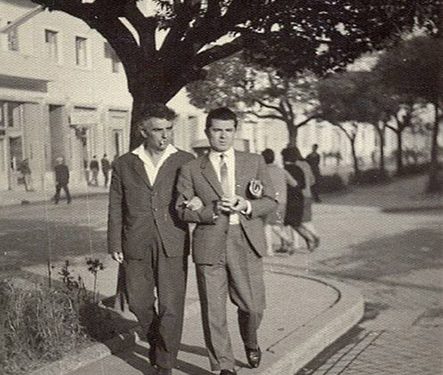
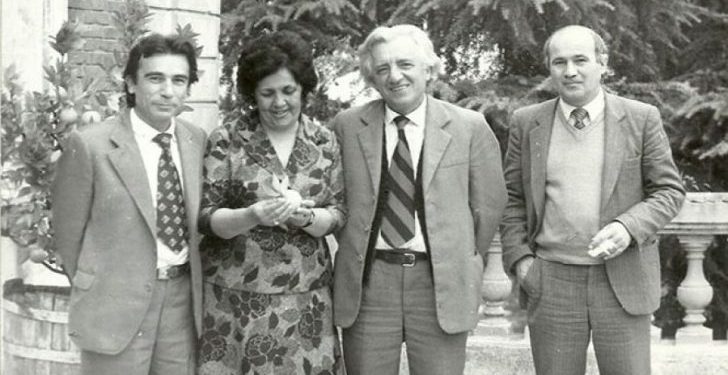
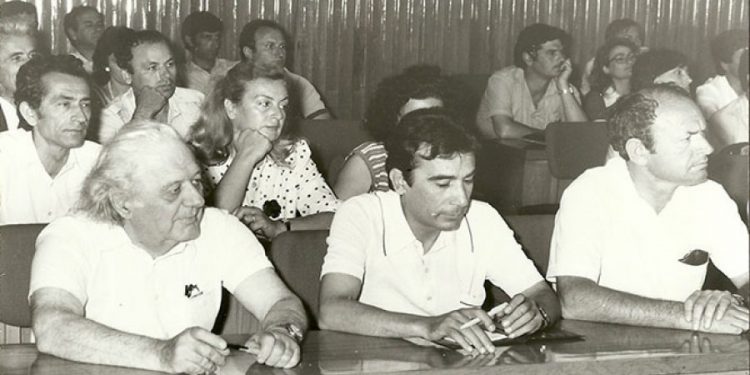
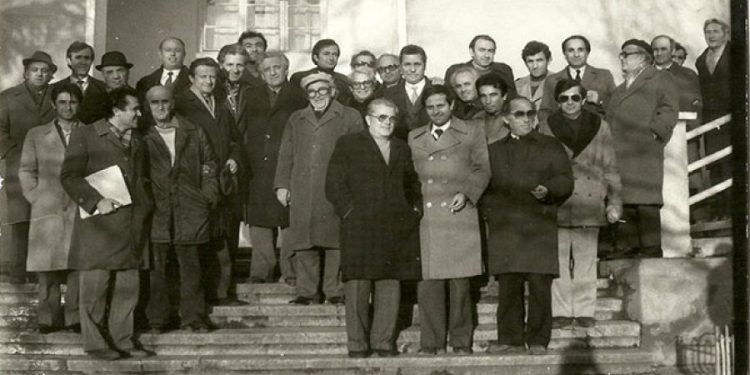

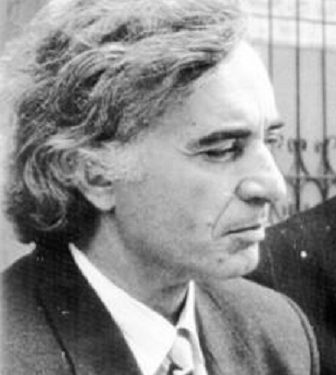
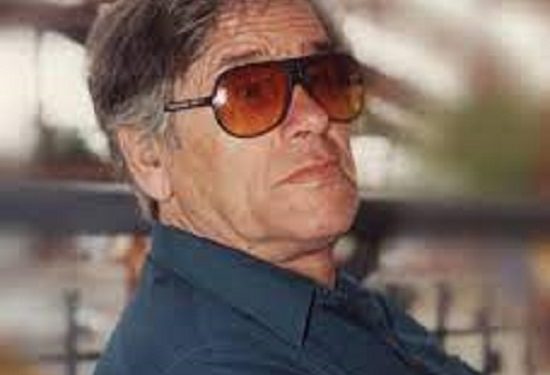
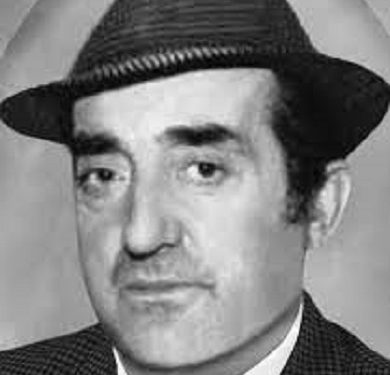
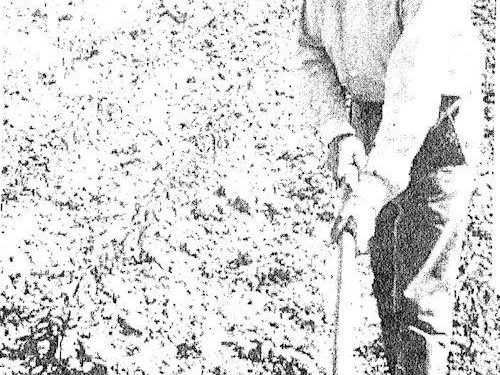
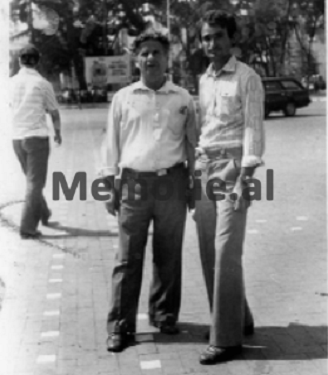
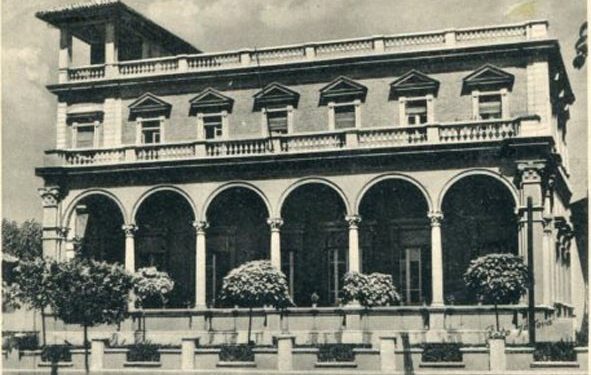
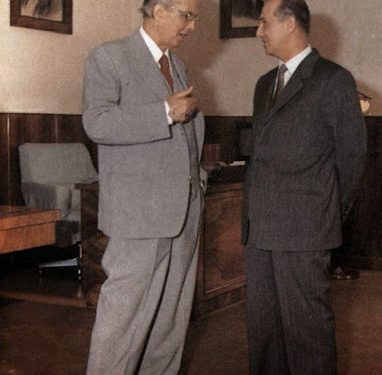
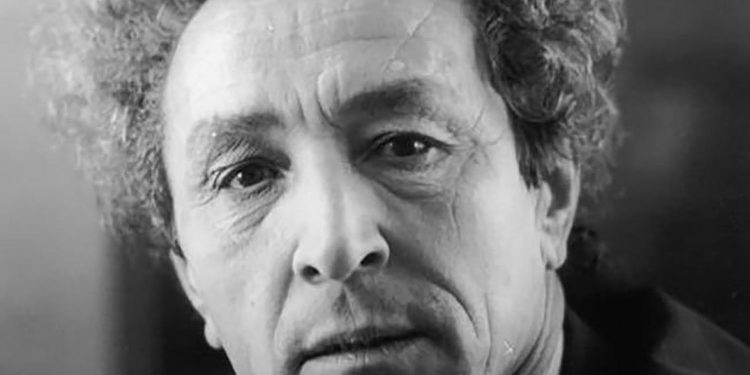

![“Count Durazzo and Mozart discussed this piece, as a few years prior he had attempted to stage it in the Theaters of Vienna; he even [discussed it] with Rousseau…” / The unknown history of the famous Durazzo family.](https://memorie.al/wp-content/uploads/2026/02/collagemozart_Durazzo-2-350x250.jpg)
